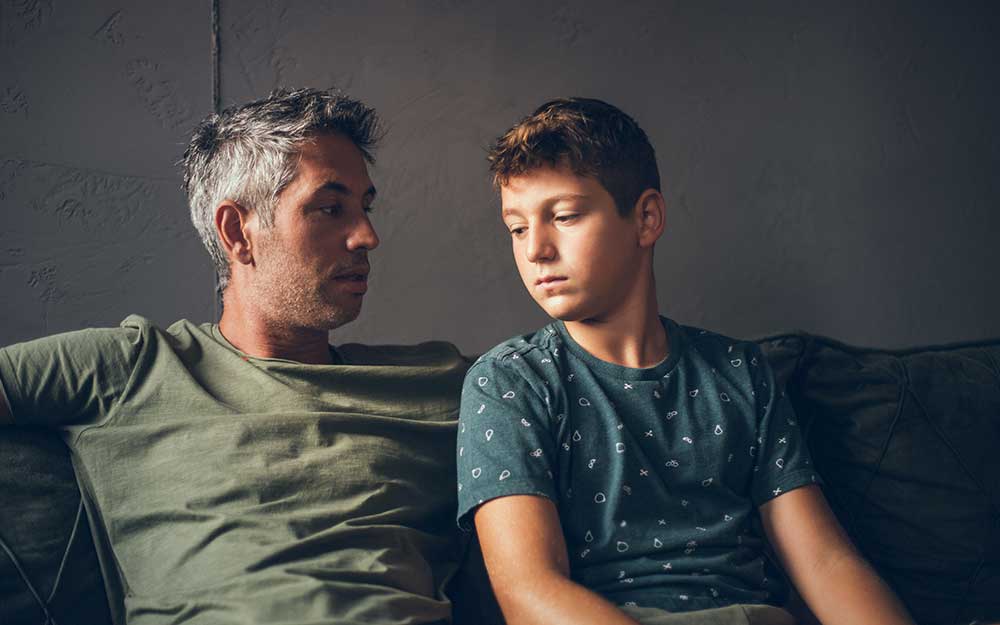Every year, 1 in 5 adults experience a mental health crisis, and 1 in 6 children struggle with mental illness
A recent report by the Centers for Disease Control and Prevention sheds light on the toll the COVID-19 pandemic is taking an on mental health in communities nationwide. And when a person is struggling, they aren’t the only one affected. Parents, siblings, and other loved ones also have to navigate the emotional and oftentimes challenging road to recovery.
How loved ones are affected
“A mental health crisis will impact family members differently, depending on the severity of the condition and how strong the family unit is,“ says Sim Yin Tan, PhD, psychologist and clinical supervisor at Rogers Behavioral Health in Tampa.
Dr. Tan explains, “We commonly see parents report feeling stress, confused, guilty, and sometimes shame because of the stigma still associated with mental health conditions. That emotional stress often leads to physical stress as well. So much attention is being given to the person in treatment that loved ones can forget to take care of themselves. Families sometimes travel a long distance for their loved one to receive treatment, and that can be difficult. Siblings may feel neglected and resentful, which could lead to an increase in behavior problems and family conflict. Social relationships outside the family can also be strained, because it can be challenging to be around other people who aren’t going through a crisis and don’t fully understand.”
Carol, the mother of a former Rogers patient, shares, “I found it difficult to talk to people about our daughter because mental health issues don’t come up in normal conversation. It was stressful when she was hospitalized, and we wondered how it would affect the rest of her life. You have hopes and dreams for your children, and when things don’t play out like you thought they would, you feel disappointed and anxious.”
Dr. Tan has coping strategies for loved ones
- Take care of yourself. It may sound cliché, but as flight attendants say on an airplane, put on your own oxygen mask first before helping others. While you’ll focus a lot of time and energy on your loved one’s recovery, it’s important not to neglect yourself.
- Seek support. Make sure you are talking with someone. A support network is essential, and some of you may benefit from receiving your own therapy if the stress becomes unmanageable.
- Participate in your loved one’s treatment. Spend as much time as you can understanding what’s going on, asking questions, and reviewing the treatment plan. We provide a lot of psychoeducation with families at Rogers, especially within our child and adolescent programs, through Parent University. We also have family sessions where loved ones meet with the treatment team to discuss how treatment is going and how they can help support recovery. We help them understand the pitfalls of accommodations, the importance of setting realistic expectations and limits, and we give them strategies to reinforce the transfer of skills learned in treatment to home and other settings
- Separate the person from the diagnosis. A person struggling with a certain disorder is not the disorder itself. It’s important to remember that it’s an illness.
- Schedule fun. With so much time and attention focused on treatment, families are encouraged to balance that with special time set aside for just having fun together.
“We are fortunate in that we had a good support system,” says John, father of a former Rogers patient. “Since our daughter was an adult when she received treatment, we let her tell us who it was okay to communicate what information to, especially in the beginning. I tried to learn more about her diagnosis by doing a lot of reading and talking to my daughter about it, and that was helpful for both of us,” he adds.
Dr. Tan says since family members spend a lot of time together, they are usually the first ones to observe changes or hear concerning reports from teachers or primary care physicians.
“In order to pick up something that might be alarming, you need to pay attention and know what’s typical for a person, as well as understand what’s developmentally appropriate,” Dr. Tan says. “Parents should educate themselves on warning signs that someone is struggling with mental health—isolating, withdrawing from usual activities, and changes in mood and daily routines like sleep and hygiene. If you see something, say something, and seek help from a mental health professional.”
Resources for families
Dr. Tan recommends several resources for families.
National Alliance on Mental Illness (NAMI)
Anxiety and Depression Association of America (ADAA)
Substance Abuse and Mental Health Services Administration (SAMHSA)
International OCD Foundation (IOCDF)
Carol says, “I want family members who have a loved one struggling to know that a mental health condition is an illness, like cancer, or cardiac disease. You have to be open to get help and seek treatment. It’s no one’s fault. Our daughter’s diagnosis was nothing we did wrong in raising her. The patient’s family has to learn how to deal with it just like any other illness, and there is hope.”
How Rogers can help
Rogers offers compassionate, evidence-based care with proven outcomes for children, teens, and adults nationwide. Call 800-767-4411 or request a free, confidential screening online.


